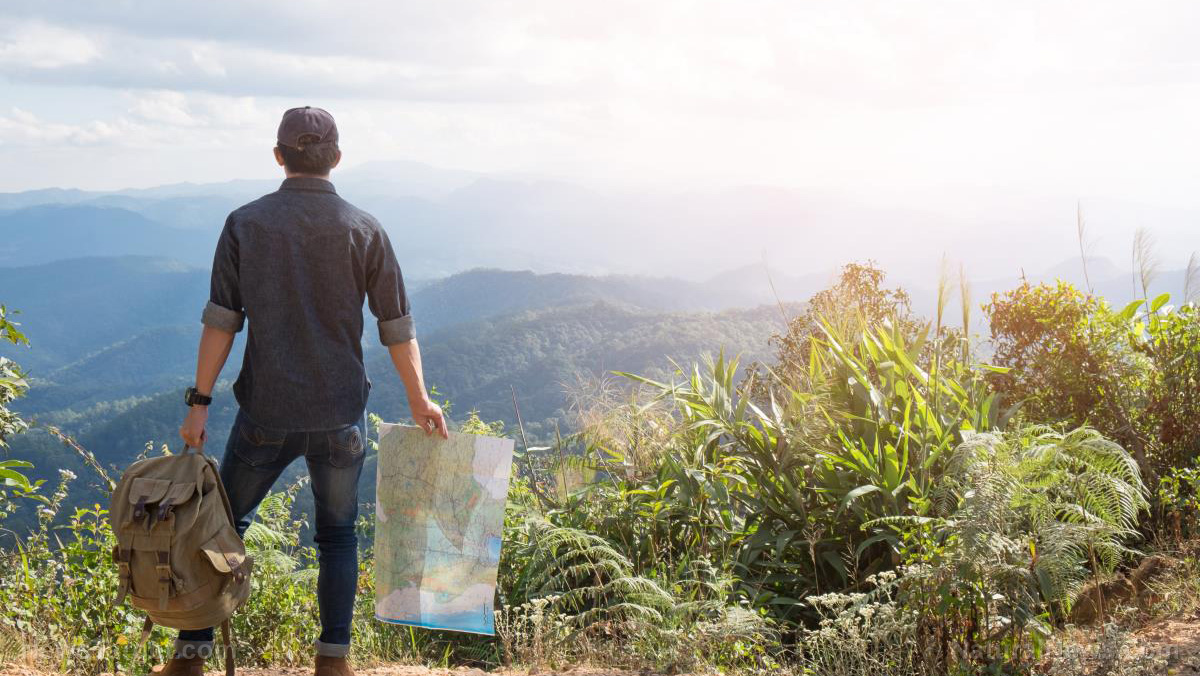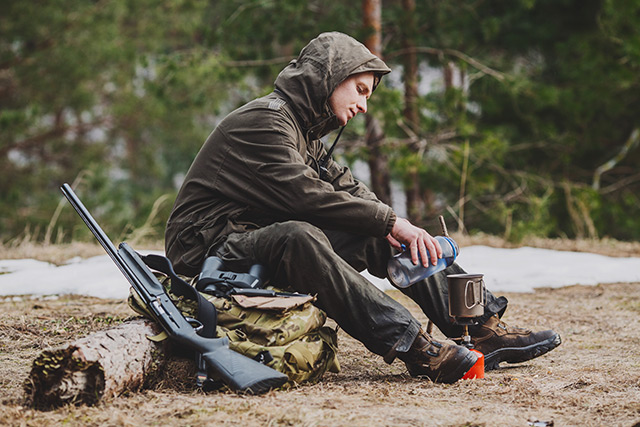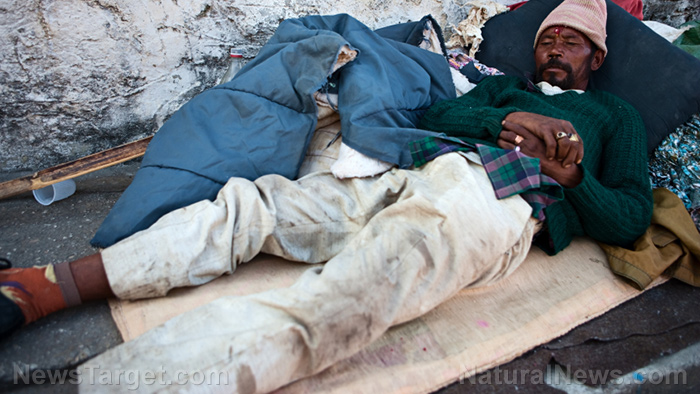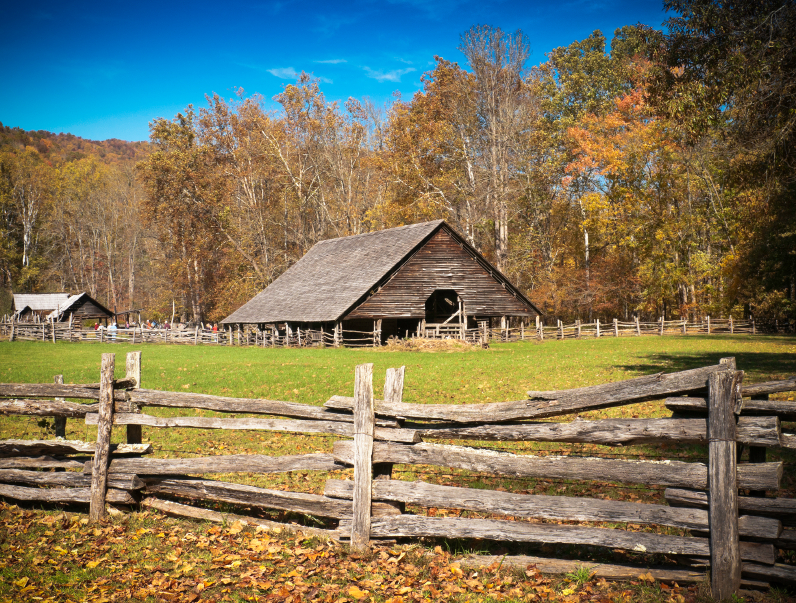Don’t make these common survival mistakes
11/28/2018 / By RJ Jhonson
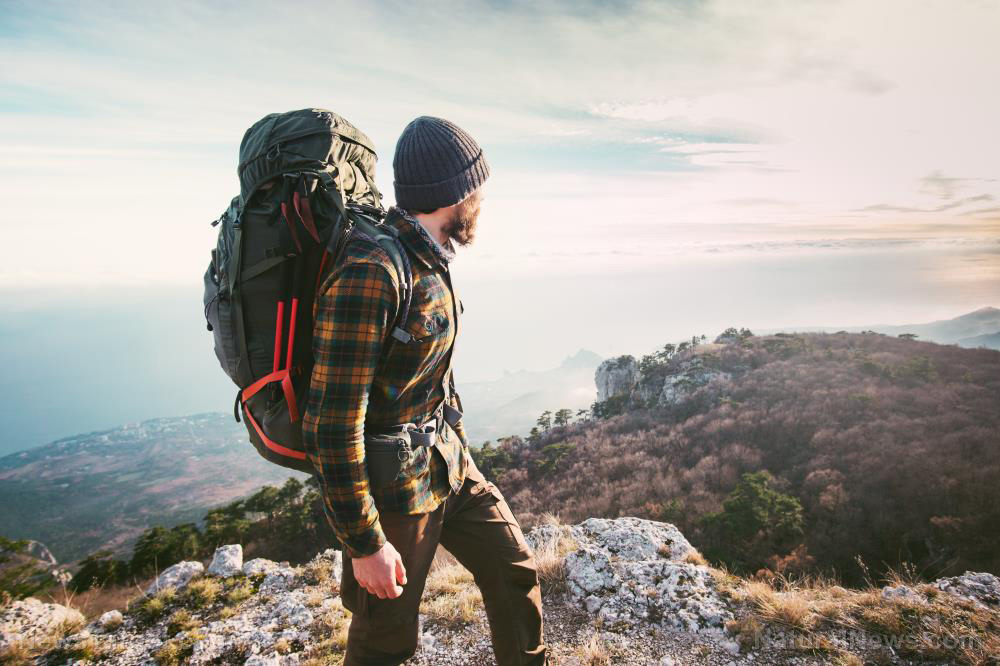
When you are in the wilderness or in a SHTF situation, your chances of survival may depend on what you do – and what you don’t do. Avoid these mistakes at all costs.
Not finding water
Dehydration could be one of your worst enemies, particularly if you are in an area with high temperatures. According to the Rule of Threes, just three days without water is enough to end your life. Prevent this risk by immediately finding a large enough supply of water or learning skills that will allow you to gather water and make it safe for drinking.
Not having food
The aforementioned Rule of Threes says you cannot survive longer than three weeks without food. While that may seem like a long time, keep in mind that hunger gradually weakens you day by day, increasing your risk of dying from starvation the longer you go without food. Learning to hunt and gather will help prevent this risk.
Being exposed to extreme temperature
Although the human body can maintain a steady internal temperature, exposure to extreme conditions can still kill. Having climate-appropriate clothing and learning to make fire and shelter are highly important skills and preparations for these threats. You will also need to learn when it is safe to move and when it’s safe to stay inside your shelter.
Getting sick
Diseases have been humanity’s bane since time immemorial. Whatever their cause may be, having the right tools, such as masks and gloves, can help save your life. Strict adherence to sanitation practices and quarantine protocols will also prevent you from contracting potentially debilitating or life-threatening conditions.
Sponsored solution from the Health Ranger Store: Lab-verified Nascent Iodine solution is a dietary supplement that provides your body with supplemental iodine to help protect your thyroid during radiation exposure. Nuclear accidents such as Fukushima (or nuclear war) can expose your body to radioactive iodine-131, a dangerous radioisotope. Pre-loading your system with stable iodine occupies the iodine receptor sites on your organs, causing your body to naturally expel radioactive iodine you may have been exposed to through air, food, water or milk products. This defensive strategy is recommended by nearly all health authorities, worldwide, including the Nuclear Regulatory Commission. Discover more at this link.
Dying by gunshot
Desperate times can result in very desperate actions. When SHTF, even a loaf of bread can be a cause for murder. Make sure you are adequately protected from gun-toting crooks who want to steal your resources by wearing body armor and learning self-defense techniques. If you do get shot, knowing first-aid techniques will help extend your life.
Being crushed to death
Your unstable environment can make you prone to getting hit by falling debris, trees, or manmade structures. If you take shelter in an environment with a lot of these, consider what you can do to minimize your risk of injury. Planning for instances when you do get trapped from falling debris will also help.
Drowning
Flooding is an ever-present threat in places close to rivers and similar bodies of water. Knowing how to swim does not guarantee your survival, however. You will need to pay attention to the possibility of incoming hurricanes and be prepared with a plan and the right gear that will keep you afloat should flooding occur.
Burning
Fires can kill you in many ways. Apart from actually burning your body, the fire can also produce suffocating smoke. Be sure to practice fire prevention procedures and have fire extinguishers at the ready. Just in case, learn strategies to quickly evacuate your area in cases of fire.
Being irradiated
Nuclear events release radioactive material that will cause you certain death. Having the right equipment, such as hazmat suits and masks, is great, but getting away from the affected area as fast as possible is better. If this is not possible, you need to find a shelter that will give adequate protection, as well as decontamination supplies to ensure that your provisions are safe for use and consumption.
Becoming stranded
What if your vehicle breaks down in the middle of nowhere? Your life will be at risk from the elements, wild animals, and other people who are interested in your resources. Prevent the risks by learning how to survive in the wild and find your way back to civilization.
Overconfidence
Your overconfidence could be your greatest enemy. Keep in mind that even if you know the right survival skills, keeping yourself alive in extreme situations can be very difficult. Be prepared for this by training continuously and refining your survival skills.
Complacency
Just because hurricanes have never bothered you before doesn’t mean they can’t the next time they come. Make sure you are prepared for anything. (Related: Basic mistakes of wilderness survival and how to avoid them.)
Mutiny
You can never be sure about other people, especially when the going gets tough. Mutiny can occur in any group, even among friends. To ensure your group’s chances of survival, make sure you select each member properly, exhibit excellent leadership skills, and maintain their morale.
Despair
Being desperate can kill you. Unfortunately, no prepping skill can save you from the effects of such extreme human emotion. What you can do though is to determine early on what you can and cannot handle. This will give you a better grasp of your limits and how you might face them later on.
Ignorance
Many situations can be survived with the right knowledge. Learn the right skills, prepare your equipment and resources, and keep yourself updated on developments in your locality to ensure that you are prepared for anything.
Learn how to survive anything at Survival.news.
Sources include:
Tagged Under: calamity, death, preparedness, prepping, Rule of threes, SHTF, survival, survival mistakes, survival skills, tragedy







